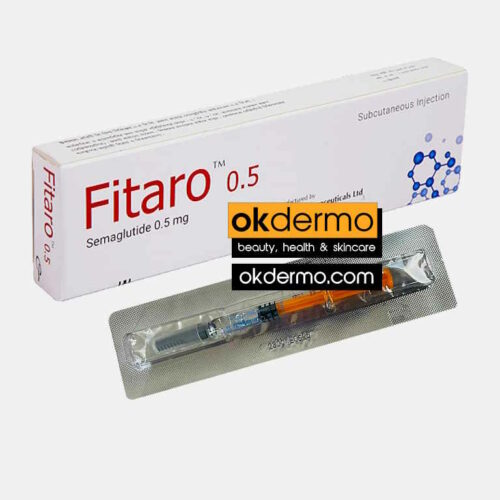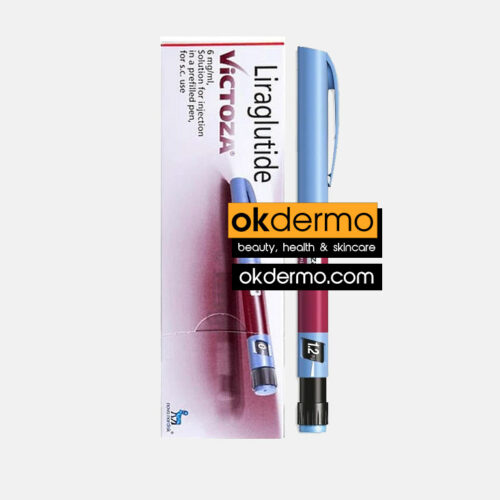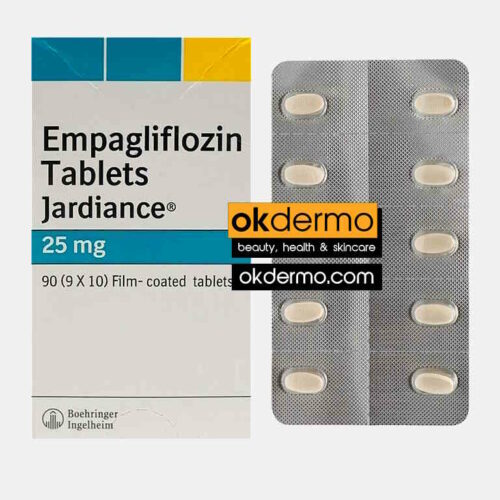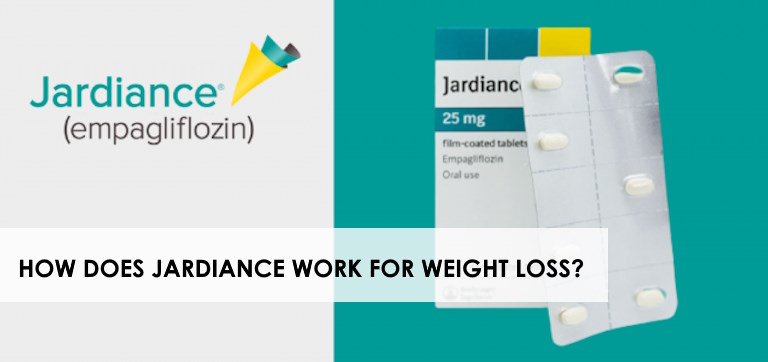How Does Jardiance Work for Weight Loss?
Table of Contents
Jardiance, also known by its generic name empagliflozin, is a medication primarily used to treat type 2 diabetes mellitus. Beyond its antidiabetic effects, Jardiance has become popular for its role in weight management. Recent studies have demonstrated that Jardiance can lead to substantial weight loss in individuals with and without diabetes, highlighting its dual benefits in both blood sugar levels control and weight management.
This guide explores how much weight can you lose with Jardiance, Jardiance vs Ozempic for weight loss, foods to avoid while taking Jardiance, Jardiance for weight loss in non diabetics, Jardiance weight loss reviews, losing too much weight on Jardiance, what happens if you take Jardiance at night, when is the best time to take Jardiance for weight loss and more concerns relating to weight loss on Jardiance and its optimal use.
How Does Jardiance Work for Weight Loss?
Jardiance (empagliflozin) operates via a unique mechanism of action to induce weight loss. As a sodium-glucose cotransporter-2 (SGLT2) inhibitor, it primarily acts on the kidneys by blocking glucose reabsorption, thereby increasing urinary glucose excretion and lowering blood glucose levels in individuals with type 2 diabetes. This mechanism not only helps in managing diabetes but also contributes to weight reduction by promoting calorie loss through increased urinary glucose excretion. Furthermore, SGLT2 inhibitors like Jardiance have been shown in clinical studies to lead to significant reductions in body weight over time.
How Much Weight Can You Lose with Jardiance?
When it comes to how much weight can you lose with Jardiance, clinical trials evaluating the efficacy of Jardiance have demonstrated significant weight reduction in diabetic patients. For instance, studies have reported average weight losses ranging from 2% to 4% of baseline body weight over a span of 12 to 24 weeks. However, individual responses may vary based on factors such as baseline weight, diet, and exercise habits.

Jardiance vs Ozempic for Weight Loss
Ozempic (semaglutide) is a medication that helps reduce appetite and slow down how quickly your stomach empties. This makes you feel full longer and can help with weight loss. Unlike Jardiance, which helps remove extra sugar through urine, Ozempic works mainly by affecting the brain areas that control hunger and food intake.
Studies comparing Jardiance vs Ozempic for weight loss have shown that both can help people with diabetes lose weight, but Ozempic usually leads to more weight loss. This is because Ozempic not only helps control blood sugar but also reduces appetite. While Jardiance can also be effective, especially with diet and exercise, Ozempic often works better due to its dual effects on blood sugar and hunger.
-

Rybelsus® Semaglutide Tablets
Semaglutide 3mg / 7mg / 14mg
Size: 30 Tablets
Brand name: Rybelsus, Ozempic, Wegovy
From USD $345.00 Select options This product has multiple variants. The options may be chosen on the product page -

Fitaro® Semaglutide Subcutaneous Injection
Semaglutide 0.25mg / 0.50mg / 1mg / 1.7mg / 2.4mg
Size: 1 Pre-Filled Injection Syringe
Brand name: Ozempic, Wegovy
From USD $141.00 Select options This product has multiple variants. The options may be chosen on the product page -

Victoza® Liraglutide Pre-Filled Pen
Liraglutide 6mg/ml Solution for Injection
Size: 3ml in 1 Pre-Filled Pen
Brand name: Saxenda
USD $231.00 Add to cart -

Saxenda® Liraglutide injection
Liraglutide 3mg
Size: 3ml / 0.10fl.oz in 1 Pre-Filled Pen
Brand name: Victoza
USD $190.00 Add to cart -

Jardiance® Empagliflozin Tablets
Empagliflozin 5mg / 10mg / 12.5mg / 25mg + Metformin 500mg / 1000mg
Size: 30 Tablets
Brand name: Jardiance
From USD $166.00 Select options This product has multiple variants. The options may be chosen on the product page
Jardiance for Weight Loss in Non-Diabetics
While it is usually prescribed for managing type 2 diabetes, Jardiance for weight loss in nondiabetics can be quite effective. It works by making the kidneys excrete more sugar through urine, which can lead to losing additional calories.

Foods to Avoid While Taking Jardiance
Dietary Restrictions and Implications for Weight Loss
When using Jardiance (empagliflozin) to facilitate weight loss, certain dietary choices can impact its effectiveness. Following are the foods to avoid while taking Jardiance:
- High Glycemic Index Foods: Avoid sugary snacks, white bread, and sugary beverages to maintain stable blood sugar levels and enhance Jardiance’s glucose-lowering effects.
- High-Calorie Foods: Limit intake of processed foods and fats to support Jardiance’s calorie-reducing mechanism.
- Alcohol: Moderate alcohol intake to prevent interactions with Jardiance and minimize dehydration risk.
Managing Diet to Enhance Jardiance’s Weight Loss Effects
To optimize weight loss with Jardiance:
- Focus on Low Glycemic Index Foods: Choose whole grains, legumes, nuts, and most vegetables to stabilize blood sugar levels.
- Include Lean Proteins: Incorporate chicken, fish, tofu, and legumes to promote satiety and support muscle maintenance.
- Stay Hydrated: Drink adequate water throughout the day to prevent dehydration, especially with increased urinary glucose excretion
Practical Tips for Taking Jardiance
When Is the Best Time to Take Jardiance for Weight Loss?
When taking Jardiance (empagliflozin), the timing of medication intake can influence its effectiveness and safety:
- Consistency in Timing: It is recommended to take Jardiance at the same time each day to maintain consistent levels of the medication in the body. This practice helps optimize its glucose-lowering effects and may enhance weight loss outcomes.
- Consideration with Meals: Jardiance can be taken with or without food. However, some individuals may find it easier to remember their medication when taken with meals.
- Avoiding Missed Doses: If a dose is missed, it should be taken as soon as possible unless it is almost time for the next scheduled dose. Doubling up on doses should be avoided to prevent potential side effects and maintain consistent medication levels in the body.
What Happens If You Take Jardiance at Night?
Taking Jardiance at night can affect how well it helps with weight loss in several ways:
- 24-Hour Glucose Control: Jardiance works all day and night to help the body get rid of extra sugar through urine. Taking it at night can help keep the blood sugar levels lower and support weight loss by losing calories continuously.
- Sleep Patterns and Metabolism: Some studies suggest that taking Jardiance at night might work better with the body’s natural fasting state during sleep, possibly boosting its effects on metabolism.
Jardiance Weight Loss Reviews and User Experiences
Jardiance weight loss reviews and user testimonials commonly emphasize several key aspects of Jardiance use for weight loss:
- Appetite Regulation: Some users report feeling less hungry or more satisfied while using Jardiance, which can make it easier to stick to dietary changes and manage weight.
- Lifestyle Changes: Successful weight loss with Jardiance often involves making healthier lifestyle choices, such as eating better and exercising more. Users often credit both the medication and these lifestyle changes for their success.
- Safety and Tolerability: While Jardiance is generally well-tolerated, some users experience side effects like urinary tract infections or yeast infections. It’s important to manage these concerns with your healthcare provider if you experience them.

Managing Weight Loss – Losing Too Much Weight with Jardiance
While Jardiance (empagliflozin) is recognized for its potential to aid weight loss by increasing urinary glucose excretion, there are considerations regarding the risks of excessive weight loss:
- Potential for Nutrient Deficiency: Rapid or excessive weight loss can increase the risk of nutrient deficiencies, particularly if not accompanied by adequate dietary intake. Essential vitamins and minerals may be depleted, affecting overall health and well-being.
- Impact on Muscle Mass: Unintended loss of muscle mass can occur alongside weight loss, particularly if dietary protein intake is insufficient. This can compromise physical strength and metabolic function over time.
To avoid these undesired effects, it’s important to consult your healthcare provider to get the optimal dose prescribed.
Frequently Asked Questions (FAQs) about How Does Jardiance Work for Weight Loss
How quickly do you lose weight on Jardiance?
The rate of weight loss and how much weight can you lose with Jardiance (empagliflozin) can vary among individuals and depends on several factors, including baseline weight, diet, physical activity levels, and overall health. Studies have shown that users typically experience modest weight loss over time, generally ranging from 2% to 4% of their initial body weight within a few months of consistent use.
Does Jardiance suppress appetite?
Jardiance is not typically recognized for its direct appetite-suppressing effects. Unlike medications specifically designed to curb appetite, Jardiance primarily works by reducing blood glucose levels through increased urinary glucose excretion. While some individuals may experience improved satiety due to stabilized blood sugar levels, appetite suppression is not the primary way Jardiance works.
Does Jardiance reduce belly fat?
While Jardiance can contribute to overall weight loss, its specific impact on reducing belly fat may vary among users. Clinical studies have shown that weight loss with Jardiance tends to be distributed across the body rather than specifically targeting belly fat. Reductions in waist circumference and abdominal fat may occur as part of overall weight loss, particularly when accompanied by healthy lifestyle changes.
Does Jardiance help you lose weight like Ozempic?
Jardiance (empagliflozin) and Ozempic (semaglutide) belong to different classes of medications with distinct mechanisms of action for weight management. Both medications have demonstrated effectiveness in promoting weight loss but they work in different ways. While Jardiance can contribute to weight loss through its glucose-lowering effects, it does not exert appetite-suppressing actions like Ozempic. The choice between Jardiance vs Ozempic for weight loss depends on individual health needs, preferences, and response to treatment as guided by healthcare professionals.
References:
- Empagliflozin reduces body weight and indices of adipose distribution in patients with type 2 diabetes mellitus – Ian J Neeland, Darren K McGuire, Robert Chilton, Susanne Crowe, Søren S Lund, Hans J Woerle, Uli C Broedl, Odd Erik Johansen, 2016 (sagepub.com)
- SGLT2 Inhibitors and the Mechanisms Involved in Weight Loss | Current Pharmacology Reports (springer.com)
- Empagliflozin for the treatment of type 2 diabetes: Expert Opinion on Pharmacotherapy: Vol 15, No 16 (tandfonline.com)
- label (fda.gov)
- Semaglutide as a promising antiobesity drug – Christou – 2019 – Obesity Reviews – Wiley Online Library
- Efficacy of Once-Weekly Semaglutide vs Empagliflozin Added to Metformin in Type 2 Diabetes: Patient-Level Meta-analysis – PubMed (nih.gov)
Post by:
Dr.Marcella Jiovanni
Health and Beauty Expert
“Marcella Jiovanni actively promotes the importance of maintaining healthy skin, she envisions the future of dermatology as moving away from pure medical, pharmacological dermatology and flowing more toward a holistic approach to wellness and skincare.”



















